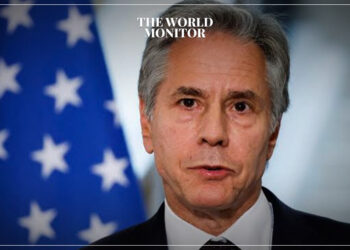White House National Security spokesperson John Kirby announced on Monday that the ongoing negotiations in Cairo to reach a ceasefire in Gaza and an agreement on hostages will continue at the working group level over the next few days to resolve specific issues.
Speaking to reporters during an online briefing, Kirby dismissed suggestions that the talks had collapsed, stating that, on the contrary, they had been “constructive,” according to Reuters.
Formation of Working Groups
Kirby added that the talks had advanced to a point where it was deemed logical to form working groups at lower levels to resolve intricate details.
He also mentioned that President Joe Biden’s senior advisor on Middle Eastern affairs, Brett McGurk, who is participating in the negotiations, would leave Cairo soon after staying an additional day to begin the working group discussions.
Kirby explained that one of the issues to be addressed by the working groups concerns the exchange of hostages held by Hamas and Palestinian prisoners detained by Israel. He noted that the details to be settled include the number of hostages and detainees to be exchanged, their identities, and the pace of their potential release.
Israel and Hezbollah
Kirby noted that the exchange of fire between Israel and Hezbollah over the weekend had no impact on the Cairo talks. He described Hezbollah’s attack on Israel as “significant,” adding that Washington continues to bolster its troop presence in the region.
He further stated that Biden was informed of the developments between Hezbollah and Israel as they occurred and that U.S. officials were in constant contact with their Israeli counterparts throughout the weekend.
Gloom Surrounds Talks
Mediators (Egypt, Qatar, and the United States) have not lost hope in reviving the ceasefire negotiations in Gaza to reach an agreement, but the positions of Hamas and Israel seem to offer little prospect for a near-term resolution.
Informed sources revealed on Sunday that both sides rejected compromises and proposals that were put on the table in Cairo, especially regarding the Philadelphi Corridor (Salah al-Din axis) and the Netzarim passage and the Israeli presence in these areas.
While the Israeli and Hamas delegations have left the Egyptian capital, “technical teams” remained to continue discussing unresolved issues.
Negotiations to Continue for Days
A senior U.S. official indicated that “talks will continue in the coming days to discuss the remaining issues and details.” He emphasized that “all parties entered the negotiations with a desire to reach a viable agreement,” describing the discussions as constructive, according to Axios.
Despite this, Hamas leader Izzat al-Rishq stated on Sunday that the movement reiterated its demand that any agreement must include a permanent ceasefire and a complete Israeli withdrawal from Gaza.
Lingering Issues
The primary points of contention in the U.S.- and Egypt- and Qatar-mediated negotiations include the Israeli presence in the Philadelphi Corridor (Salah al-Din axis), a narrow strip of land along the southern border of Gaza with Egypt. The mediators presented several alternatives to the Israeli presence in the Philadelphi Corridor and the Netzarim passage, which runs through the center of the Strip, but neither side accepted them, according to an Egyptian source.
Israel also expressed reservations about the number of prisoners Hamas demands to be released, with the Israeli delegation insisting that they must leave Gaza if they are freed.
However, Hamas believes that Israel has reneged on its commitment to withdraw its forces from the Philadelphi Corridor and imposed new conditions, including screening displaced Palestinians upon their return to the densely populated northern Gaza when the ceasefire begins.
“False Hope”
In this context, Hamas leader Osama Hamdan stated on Sunday that “the movement will not accept any talk of retracting what was agreed upon last July or introducing new conditions.”
He added that Hamas had delivered its response to the latest proposal to the mediators, accusing the U.S. administration of “fostering false hope by discussing an imminent agreement for electoral purposes.”
In July, a senior Hamas source told Reuters that the movement had accepted a U.S. proposal to begin talks on the release of Israeli captives, including soldiers and men, 16 days after the first phase of an agreement aimed at ending the Gaza war.
These developments followed a serious military escalation on Sunday between Hezbollah and Israeli forces along the Lebanon-Israel border, raising international concerns about the regional expansion of the ongoing war.
It is worth noting that several rounds of talks over the months have failed to reach an agreement to end the devastating Israeli war in Gaza or secure the release of the remaining Israeli captives held by Hamas and other Palestinian factions during their attack on Israeli settlements and military bases around Gaza on October 7, 2023, which sparked the ongoing war.






